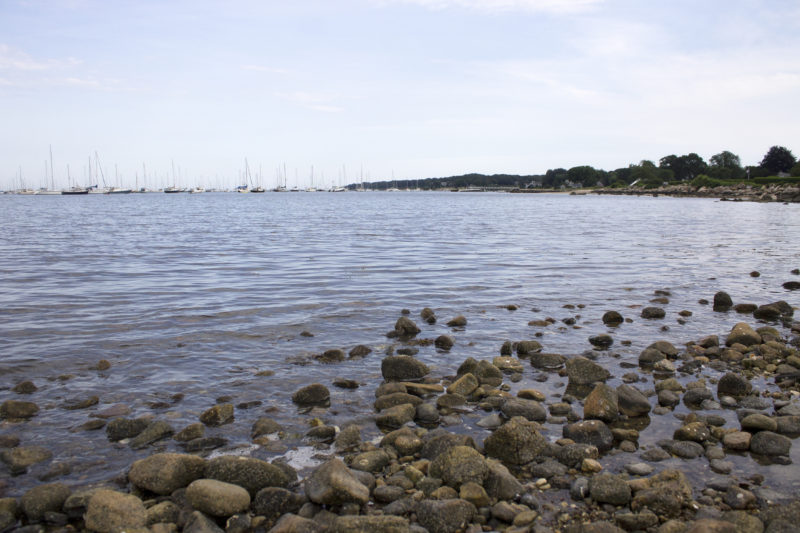Coalition launches project to restore water quality in Buttonwood Brook and Apponagansett Bay
The Coalition has launched a collaborative effort to complete the science to identify pollution sources in Buttonwood Brook in New Bedford and Apponagansett Bay in Dartmouth.
The study represents the first phase of a larger project to bring two municipalities together to collectively develop a comprehensive action plan for one of the most challenging and impacted urban ecosystems in the Buzzards Bay watershed. In addition to the City of New Bedford and the Town of Dartmouth, the partnership includes the Buzzards Bay National Estuary Program, Buttonwood Park Zoo, Friends of Buttonwood Park, Woodwell Climate Research Center, Marine Biological Lab, Woods Hole Oceanographic Institution, and the Dartmouth Natural Resource Trust.
Buttonwood Brook is a highly-polluted urban stream that runs from its headwaters in New Bedford to its mouth at Apponagansett Bay in Dartmouth, where water quality consistently ranks in the bottom 10% of all 30 major harbors and coves in the Buzzards Bay watershed. As Buttonwood Brook is the largest freshwater stream feeding into Apponagansett Bay, reducing nitrogen pollution and restoring water quality in Apponagansett Bay requires the identification and reduction of pollution sources within Buttonwood Brook. The first phase of this project will focus on identifying and prioritizing the sources of pollution within the Brook.

Degraded water quality is not the only problem impacting the Brook. Much of the Brook is channelized with armored banks of concrete or rip rap where the stream is disconnected from its floodplain. These altered areas contribute to flooding during storms and greatly impaired in-stream habitat. Efforts to moderate storm flows within the stream have resulted in the placement of obstructions within the stream channel which have had the opposite of effect of exacerbating flooding while also acting as barriers to fish and wildlife passage. Re-naturalizing the Brook will have downstream benefits to Apponagansett Bay.
The restoration of Buttonwood Brook in New Bedford would also foster environmental equity in a community that has long been disproportionally impacted by industrial dumping, pollutants from sewer overflows and storm water, as well as the industrialization of its waterways. “Work to restore the water quality of Buttonwood Brook will help to reduce the community’s exposure to environmental pollution, and will protect and promote the health and well-being of all those who visit the popular park and zoo,” said Korrin Petersen, the Coalition’s Vice President of Clean Water Advocacy. Water quality in New Bedford’s Buttonwood Park Pond has become so degraded with bacteria and nitrogen that it is a public health concern.
Numerous past efforts have documented water quality impairments in Buttonwood Brook and Inner Apponagansett Bay, but a comprehensive restoration plan has yet to be developed. “Thanks to funding provided by the US EPA’s Southeast New England Program, and the commitment of our partners, we have the opportunity to make a deep investment in identifying and remediating pollution sources in Buttonwood Brook and Apponagansett Bay that will result in cleaner water for the region,” said Petersen. This project was selected by the US EPA to receive approximately $750,000 over five years to demonstrate how concentrated and collaborative efforts can effectively address environmental challenges.